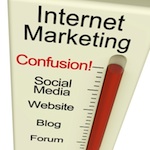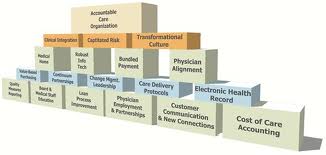 Two interesting items in the online news caught our attention recently. Both were serious reports from the business world about the comparative effectiveness of search engines, social media and email.
Two interesting items in the online news caught our attention recently. Both were serious reports from the business world about the comparative effectiveness of search engines, social media and email.
 Two interesting items in the online news caught our attention recently. Both were serious reports from the business world about the comparative effectiveness of search engines, social media and email.
Two interesting items in the online news caught our attention recently. Both were serious reports from the business world about the comparative effectiveness of search engines, social media and email.
Both were completely credible, widely circulated, and good fodder for strategic thinking and planning. The contrasting information asks and answers vital questions. With an equal amount of believability, one might be left wondering:
- Is social media more effective than search engines?
- Is email really beating the pants off social media?
- Is a Facebook page more important (valuable) than a website?
In fairness, this information is a reflection of corporate and retail business (customers), and not specifically about medical marketing and/or healthcare advertising (patients). Still, there’s useful information here…we’re talking about big gun Forrester Research, and the marketing mega-data firm Custora that crunched numbers from 72 million customers over many sites and several years.
Report One: Social Media is Beating Search Engines
First, regarding Forrester Research data via Entrepreneur, Ben Weitzenkorn wrote: “While most people in the US still use traditional search engines such as Google to find what they’re looking for online, users—especially younger ones—are increasingly discovering websites by way of social networks.” More comparative data points:
- Better than half (54%) of American Internet users find info via traditional search; and
- Social media (i.e. Facebook, Twitter) are the primary discovery tool for about one-third of users.
Report Two: Email Beats Twitter and Facebook (for Making Sales, that is)
Meanwhile, Marcus Wohlsen at Wired.com reminded everyone that, “In 2013, no company can expect to be taken seriously if it’s not on Facebook or Twitter.” But, pulling from a report by Custora, it turns out that email is a growing giant that dramatically outperforms Facebook when it comes to converting prospects into buying customers. And by that standard, Twitter wasn’t in the game.
Retailers are being far more effective with email for converting customers into new business than via social media. This report spawned several stories trumpeting the idea—as with the Wired.com headline, “Email Is Crushing Twitter, Facebook for Selling Stuff Online.” This is great news for email, which has quadrupled its rate of acquired customers over the past few years.
But that’s not the entire story. It didn’t make most of the headlines, but Custora data also showed that organic search was still, far-and-away, the most popular pathway for business to acquire customers. That’s not to say that social media does not play an important role in a comprehensive marketing plan, but search beats email and social media in making sales.
The bottom line: Marketing professionals should monitor how demographic sectors differ in their search and selection preferences. There’s no singular solution, and the swing toward social networks suggests a “focus on broader engagement instead of simply trying to drive an immediate sale.”
The important take-away idea for healthcare and hospital marketing is that, according to both reports, organic search remains the primary means for users to find what they are looking for online. Further, your internet marketing resources—website, Facebook page, email or social media—require your own, personalized, comparative ranking with respect to what works best in your situation.
These studies suggest that the relative “marketing muscle” will differ, and how they stack-up for you (or for audience segments) is likely changing. Dig into your tracking data and analytics tools to know what’s current, correct and effective. (Hint: It may not be what you think.)
These trends from business suggest how Internet users search and buy online, and can provide useful insight for healthcare marketing professionals. You’ll want to read both online news items and the related data: Social Media May Soon Drive More Traffic to Your Website Than Search Engines [Entrepreneur], and Email Is Crushing Twitter, Facebook for Selling Stuff Online [Wired].







